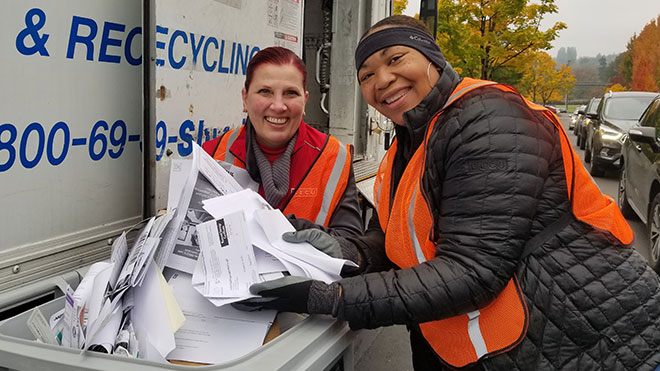With the world going increasingly digital, it can be easy to forget that paper documents can still be a major source of identity theft. For that reason, it’s important to shred them safely before they put you at risk.
Some documents, such as sales and ATM receipts, credit card statements, and utility bills should be shredded and disposed of as soon as possible. Others, such as pay stubs and bank statements, can be kept for up to a year before shredding them.
Here's a more complete list of what - and when - to shred:
Right Away:
- Sales receipts
- ATM receipts
- Paid credit card statements
- Credit card offers
- Paid utility bills
- Cancelled/voided checks
- Junk mail
After One Year:
- Pay stubs
- Bank statements
- Undisputed medical bills
- Outdated medical records
After 7 Years:
- Tax-related receipts
- Tax deduction records
- W-2s
Exceptions to Keep in Mind
That's not to say you should part ways with all sensitive information and documents, though. There are some documents that you should never destroy, and preferably keep them in a secure space. Here are a few pieces of paperwork that fall into that category:
- Birth certificates
- Social Security cards
- Citizenship papers
- Adoption papers
- Death certificates
- Tax returns
The “It Depends” Category
Some documents should be kept until you've resolved an issue, or sold a property or item associated with it. For example, keep auto titles until you've sold the vehicle and transferred the title. You should also keep disputed medical bills until you've resolved the issue. Similarly, once the information on medical records of any kind becomes outdated or no longer relevant, shred them.
Your own list of items that belong in this category may vary, but use your best judgment and always put your security first.
Free Shred Event
We're big on security at BECU, so we host a free shredding and e-cycling event twice a year. Members can bring up to three grocery bags or two banker boxes of documents to one of our shred locations, and we'll take care of the rest.
See the schedule for next shred and e-cycle event in your area.
